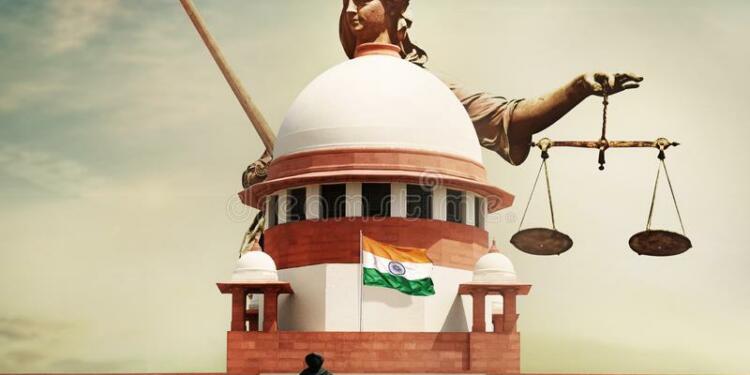We always hear the term, Justice delayed is justice denied. Justice is one of the foundational values of a nation-state existence. Justice brings peace and helps in bringing stability & order to society. A specialized independent institution Judiciary has been created for the purpose. The judicial system has been entrusted with providing the solution to the conflict in a society. The efficient and quick resolution of any conflict results in building the trust of the common people which ultimately increases the age of the democratic set-up of society.
Delay in trials resulted in overcrowding of Jails
According to a report in the Times of India, the increase in prisoners has over-burdened the infrastructure of jails. The condition is such that they don’t have a sufficient number of beds for them and prisoners are forced to sleep in 4-hours shifts.
According to the National Crime Record Bureau prison statistics, under-trial prisoners constitute around 65.7% of the total number of prisoners in Indian jails. The prisoners undertrial are the unconvicted accused person detained in jails, against whom the investigation is going on and the final judgment is yet to come.
The delay in quick disposal of cases results not only in overcrowding jails but is a serious human rights violation for the person who is being held for years in jails without a court of conviction.
The Indian Judicial system is in a sorry state of affairs
The apathy of the Indian judicial system in conducting regular trials of cases and delay in resolution of cases result in increasing pendency of cases. According to the Supreme Court of India, about 41 million cases are pending in Indian courts and 70632 cases are pending in the Apex court itself.
What costs much is, discrimination on the basis of class (elitism) in the working of the Indian judiciary. The strong elitism & lobbying in the judiciary, especially in higher courts results in the delay of common people’s cases. As the face of a lawyer and a case increased the urgency & facetiousness of a case. Although, The common citizens of the great nation still have a lot of hope in this dilapidated state of the judicial system.
Apathy of system
Persisting vacancies, poor infrastructure and inefficient management have affected the overall administration of justice in India.
According to the Third Judge case, the Collegium System would be desirable for the appointments of judges in India. Judiciary is a self-governing and self-managing institution in India. The collegium system has been largely criticised for its alleged favouritism and nepotism in the appointment of judges. On account of that, the executive also holds some reservations in this matter which ultimately results in the delayed appointment of judges.
Chief Justice of Indian (CJI) NV Ramana on various occasions have advocated for the National Judicial Infrastructure Corporation (NJIC) for the improvement of judicial infrastructure in India. Especially in lowers courts, the lack of security and proper court conditions affects the quality of a judgement.
Furthermore, prolonged vacations and holidays of the judiciary have been one of the reasons for the pendency of cases. In a country, where about 41 million cases are pending, people are suffering due to the system’s apathy and judges are on prolonged vacations looks inhuman and unacceptable for a welfare state like India. Other than the higher judiciary no other public institution in India takes so many holidays in India. According to a report, the Supreme Court usually sits for 176-190 working days, High Courts 210 days and trial courts 245 days a year. There is an urgent need to rationalise the vacation of higher judiciary to expeditious resolution of cases and bring peace to the justice delivery system.
The undertrial cases and overcrowded jails in India are serious lags in the foundational values of a democratic country. But the overburdened pendency of cases and without conviction, detention of people for a long time has been a black spot on the justice system. Now it seems like Justice itself is on trial in India.
























